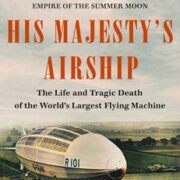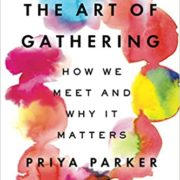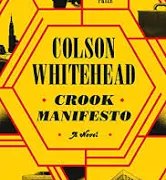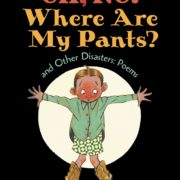The Price of Peace: Money, Democracy, and the Life of John Maynard Keynes by Zachary D. Carter
If there’s one college course that seems to fall into the “liked it/hated it” dichotomy, it’s probably Macroeconomics. For every student who leans into studying the national economy, there’s another who will be just fine to never again read such phrases as “elasticity vs. inelasticity of demand.” There’s one man to credit (or blame) for this: John Maynard Keynes.
Keynesian economics (read: macroeconomics) has pulsed throughout our political economy since the New Deal. In short, some of its main tenets concern full employment, aggregate demand clearing supply, and inflation. Still, I knew very little about the British economist himself. The Price of Peace: Money, Democracy, and the Life of John Maynard Keynes by Zachary Carter certainly took care of that knowledge gap.
Mathematics, not economics, was Keynes’ University of Cambridge degree. After a brief stint as a civil servant, he returned to academic life at Cambridge, which was where the Exchequer’s office found him just prior to World War I. A banking crisis afoot, Keynes’ keen mind was known and needed. So he crammed his 6’7″ frame into a motorcycle sidecar and made his way to London.
The Great War and the British economy would engulf his life. He wouldn’t fight in the war, as he applied for conscientious objector status, a position he came by honestly. Keynes was part of the Bloomsbury Set, which included such notables as Virginia Woolf, E.M. Forster, and Lytton Strachey. Of the many things that formed their bond, with the arts at the pinnacle, pacifism was certainly a part. For some in the group, that Keynes would work for the government during wartime went beyond the pale.
The frustration was returned in kind by Keynes. Someone, he argued, had to address the awful reality and manage a wartime economy. This wouldn’t be last time there was tension within the group. Years later, Keynes fell for, and subsequently married, a Russian ballerina. This was contrary to the Keynes they knew. Bloomsbury Keynes was a homosexual.
At war’s end, Keynes vehemently opposed the Treaty of Versailles. Forever an enemy of austerity measures, he believed the harsh economic terms would destabilize a defeated Germany and potentially lead to another world war. The treaty put Keynes at war with himself. As a young man, obtaining a post at the esteemed British Treasury was his singular goal. Now, having seen firsthand how important the roil of politics is, he could not sit quietly as a future disaster was being orchestrated.
He penned “The Economic Consequences of Peace” which became a sensation in both Europe and the U.S. His intellectual might was on full display, doubtless, but so, too, was his acid tongue. Sparring no one also effectively ended his government career (at least until World War II). Keynes is famous today for his economic theories. In the early 1920s, however, his fame was as a polemicist.
Had a pre-war work—finally published in 1921—augured more than just an acknowledgement that it “made a contribution to the field,” Keynes may have swiftly returned to university life, but, this time, in the philosophy department. His A Treatise on Probability was overshadowed by one of his friendly rivals. For when Wittgenstein’s Tractatus Logico-Philosophicus was published, the gravity shifted and all of academia fell in with the Austrian philosopher.
Keynes continued to publish on economics and, in so doing, challenged conventional (classical) economics. At the macro level, the study of economics was firmly entrenched in laissez-faire thinking: You let the business cycles work and equilibrium will be achieved. Keynes certainly agreed that supply/demand was the driving force. But what of those moments of disequilibrium? Laissez-faire’s response: It will won’t last; the market will stabilize in the long run. “In the long run,” Keynes returned, “we are all dead.” This rejoinder has been bandied about ever since and in a myriad of contexts. But here’s the rest of the quote: “Economists set themselves too easy, too useless a task if, in tempestuous seasons, they can only tell us that when the storm is long past the ocean is flat again.”
Keynes advocated what economists now call “demand management.” Demand did not always clear supply, especially during times of war and depression. To Keynes, government expenditures via fiscal policies would shift the demand curve. Such movements would have a positive multiplier effect on other areas of the economy. His multiplier theory argued that laissez-faire’s inaction was actually actionable in that it allowed economic distress to reverberate.
While Keynes’ work would be seen as “revolutionary,” the man behind it was somewhat uncomfortable with that adjective. In many ways, his worldview was formed as a Burkean conservative. But he also valued some of Jean-Jacques Rousseau’s egalitarianism. Merging the two philosophies to thwart authoritarianism was, to Keynes, a laudable enterprise. He loved his posh Bloomsbury life too much to see it end. Plus, he wanted the rest of us to have a chance to live such a life as well. So he was no Marxist. In fact, he believed that Marx’s argument that capitalism would inherently fail was inherently wrong. At the same time, he didn’t believe that there was any natural law that destined capitalism’s success either.
Keynes taught his theories at Cambridge, yet, initially, they were not winning the day among graduate students. (Marxism was.) This began to change. Not only were these students beginning to embrace Keynesianism, some would travel down to the London School of Economics and provoke impromptu debates with the students still fixed in laissez-faire. Eventually, American economics students embarked to Cambridge to study under Keynes.
Still, Keynesianism was at the periphery. Keynes knew he needed to codify it into an esoteric work meant for academics. (In the world of academia, “you need a theory to kill a theory.”) This was realized in the The General Theory of Employment, Interest and Money.
The Great Depression resulted in Keynes becoming Churchill’s de facto chancellor of the exchequer. Particular attention was given to the fiscal policies put in place in the United States, as they were seen as test cases for Keynesianism. The result: American economists who initially resisted Keynes became Keynesians in the same decade of his death.
According to Carter, “No European mind since Newton had impressed himself so profoundly on both the political and intellectual development of the world.” The revolution had come. And as happens with so many revolutions, so comes the counter-revolution.
In the U.S., the aristocracy saw Franklin Roosevelt as a traitor to his class. Riled moneyed men were willing to fund academics and publications willing to challenge Keynesianism. William F. Buckley Jr.’s National Review used Friedrich Hayek’s The Road to Serfdom as its intellectual base and went to work. Keynesians were up for the fight. What left them reeling, however, was McCarthyism.
Keynesianism would have many morphisms throughout the latter half of the twentieth century. American Keynesians, at turns, embraced more corporate-influenced policies the British Keynesians found abhorrent. Another famous quote concerning Keynes came from President Richard Nixon: “I am now Keynesian in economics.”
Enter Milton Friedman’s monetarism and decades of strident debate concerning the size and role of government in fiscal and monetary policy, and here we are. (Economists can be an acerbic lot, where things get really personal, really fast.) And you don’t have to go back too far to see Keynesian fiscal initiatives at work, as in the 2008 financial dilemma.
Regardless of the modern relevance of Keynes, here’s what Carter wants us to take away from his astute book: Keynesianism isn’t so much about economic theory as it is about radical optimism. Keynes lived in a time of dire economic crises that gave rise to authoritarians who then took their respective countries off the cliff. For him, economics was the light by which we could find our way out. For us, Keynes was every bit a philosopher of war and peace.











